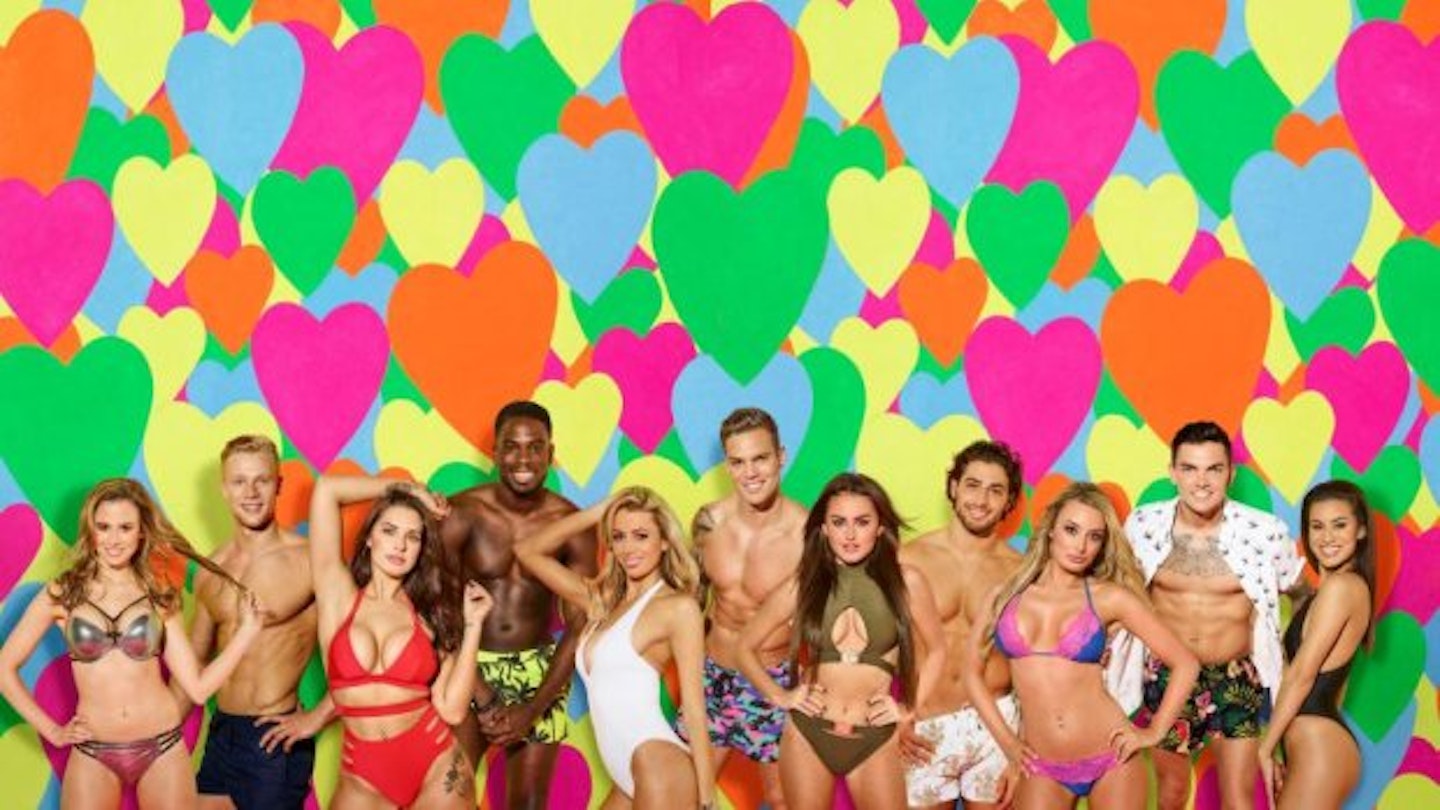Admittedly, if you’ve not watched Love Island before, you might see the adverts and think it’s a programme that could have only been birthed by some sort of Daily Mail pop cultural outrage generator. It’s just gorgeous, bronzed, tattooed 20 somethings in string bikinis trying to have sex with each other, right? Actual porn, on every night on ITV2, before Family Guy! When the 2016 show aired, even our parents and grandparents were aware of the series after every single news outlet carried the story of a contestant and former Miss GB Zara Holland, who lost her titleafter she was filmed having sex on the show.
Debates raged. Surely there was nothing wrong with the fact that a happy, consenting woman wanted to get her end away while she was on holiday, albeit a holiday where there are cameras in the bathroom? Some people argued that if you worked at Argos, and got caught on the job in your red and navy polo neck you’d be sacked too, and what was the difference, really? Collectively, we were cross about the sex, but weirdly, no-one mentioned love. Even though this happened on a programme called Love Island. Even though most of us think that you’d have to really, really love someone to get caught up in the moment enough to have sex with them on prime time TV, when your friends, family, old teachers and the slightly creepy man who runs the paper shop near your Mum’s would probably be watching.
Sex is absolutely everywhere. It’s not shocking to see someone else’s nipple before breakfast. If you have access to a phone and some electricity, you can see full penetration at any time of day - it’s easier to watch a threesome than it is to order and eat a pizza. So it can’t be the sex that keeps us tuning into* Love Island*, any more than it’s the contouring that makes us watch Keeping Up With The Kardashians. It’s the love that we want to see. We’ve become voyeuristic about romance. Love Island is shocking to viewers in 2017 because it features men and women who are in their twenties who build connections with each other through speech. There’s direct interaction. There’s no frowning, swiping and dismissing prospective dates because they’re wearing a weird hat. The contestants have to take each other at face value, and work out whether there’s actual chemistry. This seems thrilling, exotic and weird, and I think that we all long for it.
It’s become a verb, an adjective and a cliche, but Tinder has changed everything about dating people and sleeping with them. It takes our most basic biological urges and gives them an adrenaline shot - we accept or reject people based on nothing more than a feeling we have in our guts. Of course, Tinder and its imitators have brought joy and genuine connections to millions of its users, but it’s also made the dating experience feel more transactional than it’s ever been. Studies have shown that people use the app the most during periods of loneliness and boredom. Spending Sunday night swiping is easier and cheaper than filling a basket on ASOS. Of course, in some ways, it’s great that dating has been demystified and it’s more accessible than ever, but there are analogies to be made between app-based dating and junk food. It’s fine in moderation - but when it’s all we have, it isn’t good for our health.
I think our fascination with Love Island shows that we have secret appetites that aren’t being satisfied. We’re ravenous for romance. Because the programme is marketed in such a heavily sexualised way, we’re ‘allowed’ to like it - we can pretend that we aren’t sentimental, that we don’t yearn for tenderness, that we’re still focused on gossip and tits and looking for our next hook up. But this year, when someone inevitably has sex with someone else, and the tabloids are once again shocked and horrified that two horny, happy people have done something that most of us do every so often, it might be worth wondering why we’re all so shocked and fascinated.
Sex can be messy, but it’s relatively straightforward when you compare it with the tricky tangle of emotions we encounter when we really fall for someone. We can protect ourselves from STIs and unwanted pregnancies, and make contingency plans for when sex has unexpected consequences. But there’s nothing that makes us less vulnerable or protects us from hurt when we fall in love. Yet, we still want to try. Millions of us aren’t watching Love Island because there’s a chance that we might see some sex - we’re here for the hope. If these people can look for love despite the serious risk of heartbreak, there’s a chance for us too.
Like this? You might also be interested in…
Love Island Isn’t A Guilty Pleasure, It’s The Only Place On TV Where Anyone Is Honest About Dating
De-Crowning Miss Great Britain Is To Punish Her For Her Right To Make Sexual Choices
Love Songs Are Dying Out. Does This Mean We’re The Least Romantic Generation Ever?
Follow Daisy on Twitter @NotRollergirl
This article originally appeared on The Debrief.
